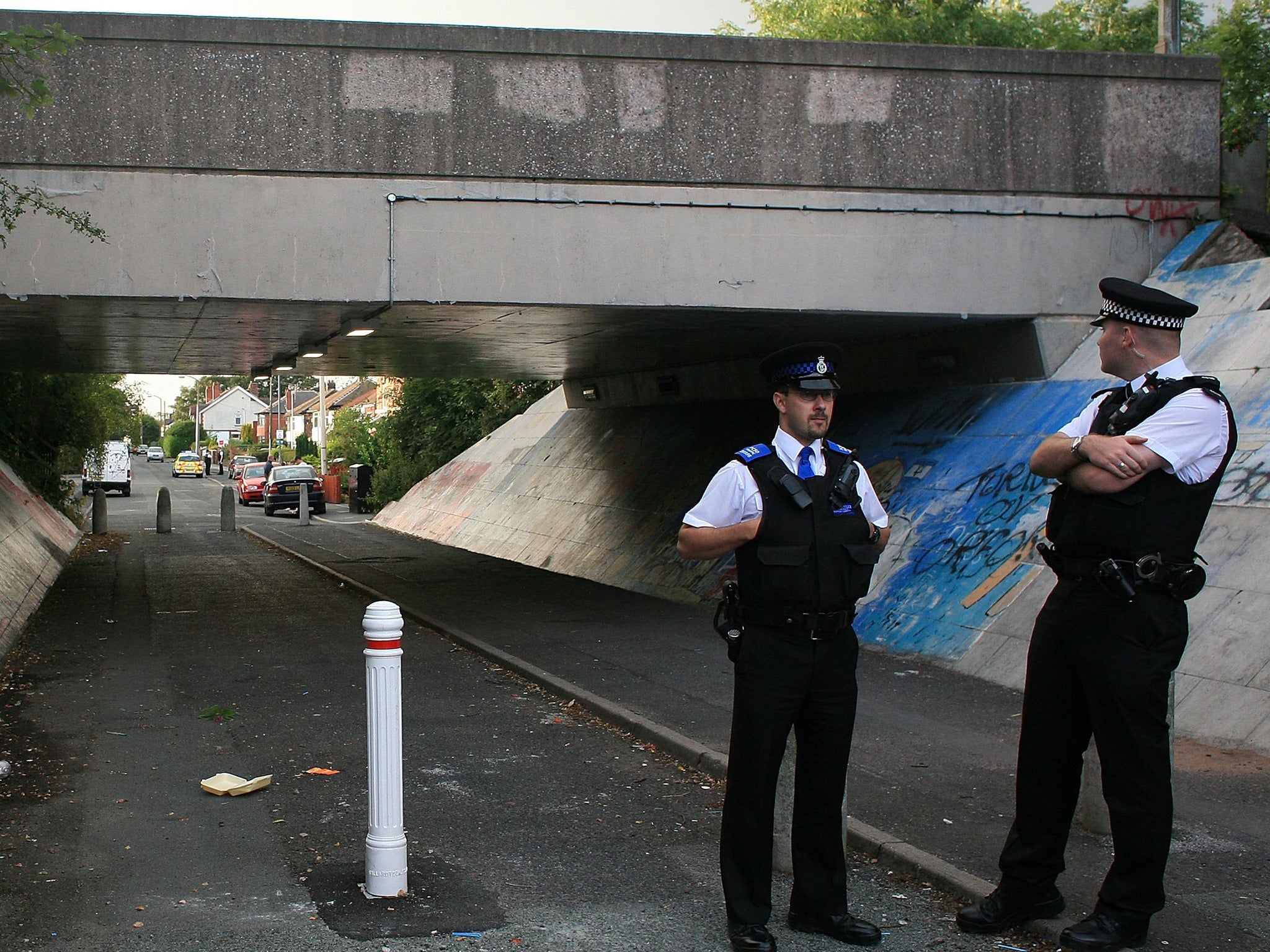Most young men in gangs 'suffer psychiatric illness'
Members are four times more likely to suffer from psychosis than young men who are not, say researchers

The majority of young men in gangs are suffering from some kind of psychiatric illness, landmark research published today shows.
Gang members are four times more likely to suffer from psychosis than young men who are not in gangs, figures adjusted for social context reveal. More than 4,600 men aged 18 to 34 were surveyed in areas of Britain with high gang membership by Queen Mary University, London.
The study looked into levels of psychiatric illness, violence and gang membership. Of those who claimed to be members of gangs, a quarter screened positive for psychosis and 85.8 per cent had an antisocial personality disorder. Around a third of these had attempted suicide and more than half had an anxiety disorder.
Substance abuse was also prolific amongst gang members, with two thirds suffering from alcohol dependency and 57 per cent addicted to drugs.
Professor Jeremy Coid, director of the Forensic Psychiatry Research Unit at Queen Mary, and lead author of the paper, said: "No research has previously investigated whether gang violence is related to psychiatric illness, other than substance misuse, or if it places a burden on mental health services. Here we have shown unprecedented levels among this group, identifying a complex public health problem at the intersection of violence, substance misuse, and mental health problems among young men."
He said the study should inform the way that potential gang members were helped. "With street gangs becoming increasingly evident in UK cities, membership should be routinely assessed in young men presenting to healthcare services with psychiatric illness in urban areas with high levels of gang activity."
More than 27 per cent of all the men surveyed said they had been violent or involved in a fight in the last five years. Some 2.1 per cent - or 108 of them - were gang members.
Overall around one per cent of British men aged 18 to 34 are gang members. This rises to 8.6 per cent in the London borough of Hackney, where one in five black men reported gang membership.
Reacting to the research, published today in the American Journal Of Psychiatry, Sean Duggan, chief executive of the Centre for Mental Health, said: "Young people involved in gangs have too often experienced life-long mental ill health and vulnerability, some of which could have been prevented through effective early intervention. Today's study is a reminder of the vulnerabilities that lead many young people toward gang activity."
Join our commenting forum
Join thought-provoking conversations, follow other Independent readers and see their replies
Comments
Bookmark popover
Removed from bookmarks